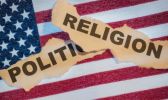In the wake of the United States’ military operation in Venezuela—including the abduction of the murderous, communist, dictator Nicolás Maduro—Professor Salim Mansur of Western University and Robert Vaughan examine the profound ramifications. Domestically, the action raises serious questions about the U.S. Constitution, as only Congress holds the authority to declare war. Internationally, it appears to contravene established norms of international law.
Although the Trump administration’s conduct violated constitutional principles in principle, such actions are far from unprecedented. Every U.S. president since the end of World War II has engaged in military interventions without formal congressional declarations of war. Similarly, on the global stage, violations of international law by permanent members of the UN Security Council—endowed with veto power—have occurred repeatedly without effective consequences.
Our conversation underscores a troubling reality: the United States, often regarded as exceptional by various measures, operates beyond meaningful constraints of international law due to its veto in the Security Council. Likewise, the president appears increasingly unbound by the Constitution, given historical precedent and Congress’s consistent failure to assert its authority—often through tacit bipartisan acquiescence.
Both the U.S. Constitution and the United Nations framework have proven impotent when confronted with a president acting unilaterally in what he deems the best interest of American citizens.
In a recent interview with The New York Times, President Trump was asked whether any checks existed on his power on the world stage. He replied: “Yeah, there is one thing. My own morality. My own mind. It’s the only thing that can stop (me).” When pressed on international law, he added, “I don’t need international law. I’m not looking to hurt people.”
Some may view this stance as echoing President Truman’s famous motto, “The buck stops here”—an assertion of personal responsibility. Others, however, may interpret it as monarchical in character. As Salim noted in our conversation, “Donald Trump is not following in the footsteps of George Washington. Donald Trump is now the George III of America.”
History since World War II demonstrates that U.S. presidents have proven largely unstoppable in such matters, with American forces overwhelmingly dominant. As Salim also observes, “The cost of enforcement can only lead to further conflict—a conflict, especially in the age of nuclear weapons, that nobody can say how it will end.”
Transcript Donate







